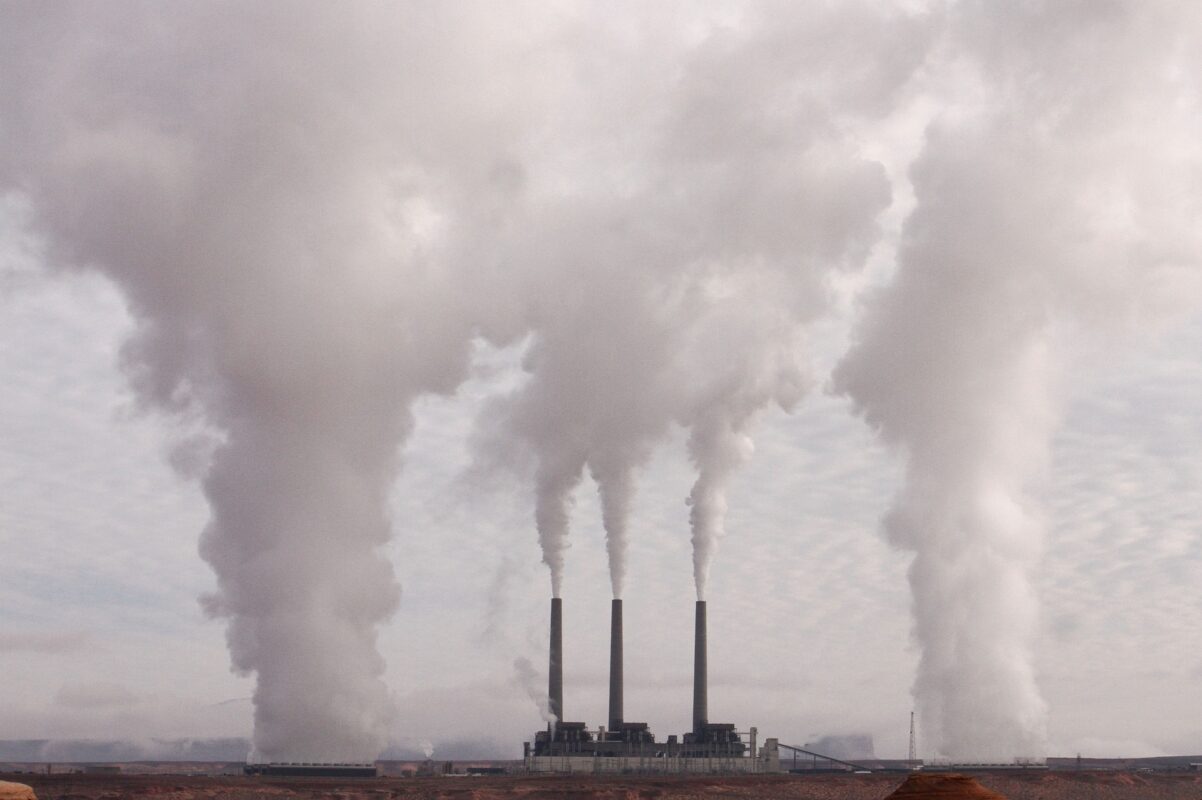The chemical industry is one of the most important in the modern world, and makes much of modern living possible with the creation of chemicals and materials used across every industry imaginable. In fact, 96% of all manufactured goods are made possible by the chemical industry.
The chemical industry is the largest industrial energy consumer and the third largest in terms of direct carbon emissions, according to the IAEA. This is because it touches almost every aspect of manufacturing in the world today.
Fertiliser, plastics, medicines, petrochemicals and much more are produced by the chemical industry. They often use the products of crude oil as feedstock, and burn fossil fuels to create the conditions necessary for chemical production and consequently, emit a great amount of carbon into the atmosphere. While the existence and polluting nature of this industry is somewhat inevitable, it must be mitigated.
Due to its size and importance, the chemical industry is one of the biggest polluters on the planet, and action must be taken to reach climate targets and prevent the further pollution of the natural world.
The Chemical Industries Association (CIA) has committed to reducing carbon emissions by 90% by 2050, an ambitious target that will require significant effort, but is far from impossible.
Running facilities with green energy
The use of large quantities of energy is inevitable, since many chemical reactions need certain environmental conditions that require energy to generate and remain constant. Mechanical equipment has to be powered to send chemicals around a site, and operate things like compressors, mixers, pipes, and more.
Chemical factories often have to heat chemicals, and especially water to provide steam, normally by burning fossil fuels. Chemical manufacturers can switch to microwave heating, which has been proven to use 70% less energy and reduce heating time by 80% for composite material producers than fossil fuel systems. It means less energy is used, and for less time.
The energy that powers the entire facility is usually linked to fossil fuels due to their reliability. However, as renewable sources come online and prove their reliability, powering a factory with wind, solar, biofuels and waste incineration can reduce the demand for fossil fuels, and cause less carbon to be emitted into the atmosphere.
It’s essential for the chemical industry to reduce its dependence on fossil fuels, the the major source of carbon emissions. Despite its growing reputation, carbon capture technology is unproven on a large scale, and can't be trusted to become viable.
Optimise your supply chain
Supply chain optimisation is an easy way to quickly reduce your carbon footprint, and save on costs. It’s something every industry in the world is doing, and became especially pertinent after the global pandemic.
Making sure your supplies come from as near as possible, reducing time in transport, and generally localising your supply chain and taking it off the road is a great way to reduce your impact on the environment. Transporting goods and chemicals by rail instead of road can reduce carbon emissions by up to 65%.
Packaging in the chemical industry is all about function, and making sure the product is safely stored and easily accessed. Certain chemicals require their packaging to be made of certain, inert materials to preserve them, and this can contribute to a chemical producer’s carbon emissions.
While compromises cannot be made on the material, other efforts can be made. Suppliers can commit to less non-essential printing on packaging and products, using lighter and smaller pallets, and looking for ways to supply the same quantities of goods in smaller, lighter packaging.
Lobby government for support and better policies
The greatest agent of change has and always will be the government. By setting the right incentives and punishments, the government can modify behaviour to lead to a decrease in carbon emissions..
Providing subsidies to smaller chemical manufacturers to bring equipment up to standard, or electrifying as much of the manufacturing site as possible. These are measures that the industry can prove the viability of on paper, and could even have the knock-on effect of supporting a competitive, domestic ‘green’ industry in a changing global economy.
Regulations are very important, and the industry must have rules in place, and punishments if those regulations are breached. While that can be different for different jurisdictions, it would be prudent to impose upgrades that bring efficiency, and to invest in technology – such as microwave heating – that reduces the amount of energy used. Companies that fail to do this can be fined, or even worse, lose the right to operate in the industry.
Committing to reducing fossil fuel use is the key
Ultimately, the carbon emissions from the chemical industry stem almost entirely from the use of fossil fuels. The need to power equipment that produces the correct environmental conditions for manufacturing will never change, but how that power is provided can. By choosing renewable, green energy sources, manufacturers can avoid generating carbon completely or attain carbon neutrality.
The chemical industry and its products are unavoidable, and without it, our standards of living would drop significantly. We can’t do away with it, or wind it down; all we can do is mitigate its effects and utilise new technology and sources of green energy that can replace fossil fuels.
At East Harbour Group, we’re committed to sustainability, and always rework our routes to keep them as short and cost-effective as possible. If you’re searching for chemical supply, or chemical transport logistics experts, give the team a call or drop us an email and we’ll get back to you as soon as we can.

